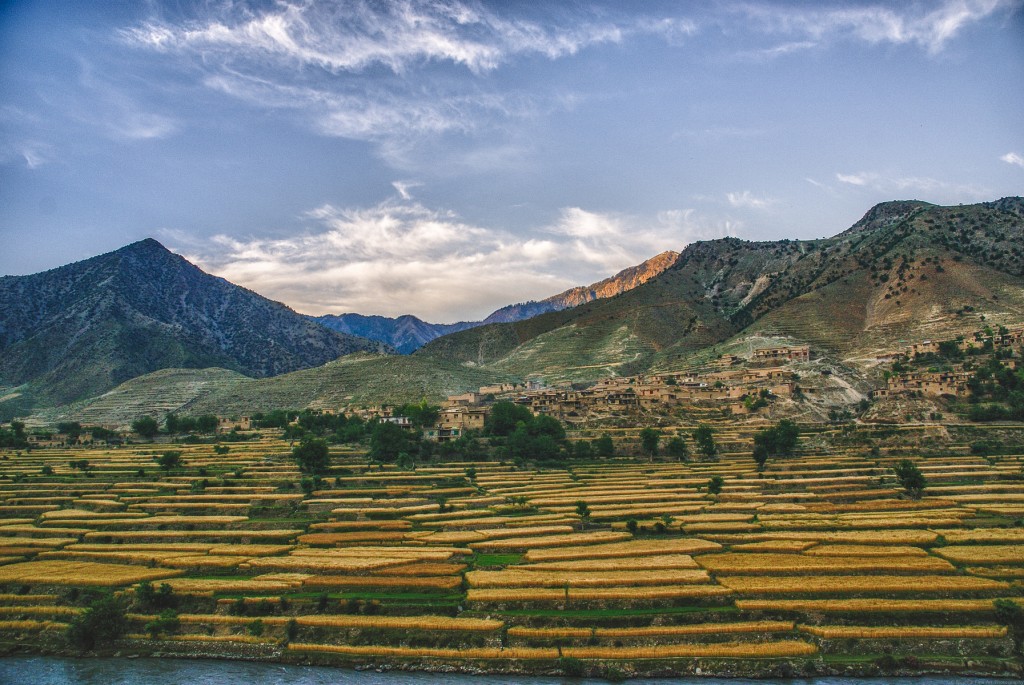‘Although in some things we are opposed, we share an irreducible humanity.’ Julian Sheather reflects on a touching tale of human compassion.

Afghanistan. Photo: Ricymar Photography.
A friend recently sent me a news story from Afghanistan. As a slanting light can show hidden dips and lines in a landscape, so the story gradually revealed the knots and burrs of some of my half-buried prejudices. The story was about an Afghan psychiatrist, Nader Alemi, who practices in Mazar-e-Sharif, a major trading city in the north of the country. The city was taken by the Taliban in 1998 and they overran much of the surrounding countryside. At the time, Alemi was the only psychiatrist in the north of Afghanistan who spoke Pashto, the language of the majority of Taliban. For more than three years, with at least the tacit agreement of their commanders, thousands of Taliban fighters made their way to his consulting rooms. And what they bought to him during those years was the terrible psychological fall-out of war. The minds of these men were broken by it: lonely, scared and depressed, many of them admitted to a longing for death.
As I read about the damaged minds of those Taliban fighters I sensed the falling of that oblique light. The image of the Taliban I had absorbed – abbreviated and buckled by the media – did not have room for such ordinary human vulnerability. If I thought of them at all then it was as men trained from birth, like mountain Spartans, to be a warrior caste – inured to hardship and brutality, not degraded by warfare but born to it, nurtured by it. And to this I added, from out the ever-present stock of received ideas, the impregnable shield of a fundamentalist Islamism: for me the Taliban were the militarised dervishes of an orientalising fantasy.
But despite the furious and repellent ideology of the Taliban, the men that found their way to Alemi’s neutral and forgiving consulting rooms were suffering from the ordinary human consequences of combat. Mullah Akhtar, second in command to the Taliban’s spiritual leader, Mullah Omar, habituated to the horrors of front-line combat, was delusional and hallucinating. Powerlessness fed depression: men had given over their fates entirely to their commanding officers and had no idea whether they would see the day out. Despite being depicted as men with medieval minds intent on burying the modern world, and despite seldom having seen a doctor before, they had no problem with modern psychiatry. Perhaps they reached for it as if it were a lifeline.
No doubt there were times when Alemi struggled with the men who were ravaging his country, but he held to the humane dictates of his professional codes:
I used to treat the Taliban as human beings, same as I would treat my other patients…even though I knew they had caused all the problems in our society…Sometimes they would weep and I would comfort them.
Taliban orthodoxy prohibits the education of girls, but while Alemi tried to heal the minds of Taliban fighters, his wife, Parvin, ran an underground school designed to do precisely that, for up to a hundred girls at a time. Given that Alemi was trying to hold the minds of their fighters together, the Taliban turning a blind eye to a modern psychiatrist in their midst is understandable. Parvin’s was maybe the greater risk. But somehow both she and the school survived. Some of her pupils have gone on to become doctors and engineers. There was that slanting light again.
When I read that news report, along with the slight unknotting of a prejudice or two came a strange shuffle of thoughts that revealed to me some of my deepest commitments. It is commonplace that ideas and beliefs rigidly gripped will divide us. The ways of the Taliban are about as remote from mine as I figure contemporaries can get. But one can condemn a regime, an inhuman ideology, while still acknowledging the humanity of those who promote it, or who are held, one way or another, physically or mentally captive by it. Although in some things we are opposed, we share an irreducible humanity. And so that oblique light came from somewhere. It had its origins in a set of humane practices that all humanists can celebrate: in the scientific medicine that can distance itself from conflict and quietly focus on a suffering human being; in the feeding and forming of young and growing minds through educating the whole human being. And in the belief, or call it a hope, integral to journalism at its best, that a news story set down in northern Afghanistan can open the mind, however slightly, of someone sitting at his desk in a very different city several thousands of miles away.
So when are you going to start getting tough with the discrimination against atheists??? especially the islamic states of saudia arabia,malasia and the likes.
Here in the UK too.